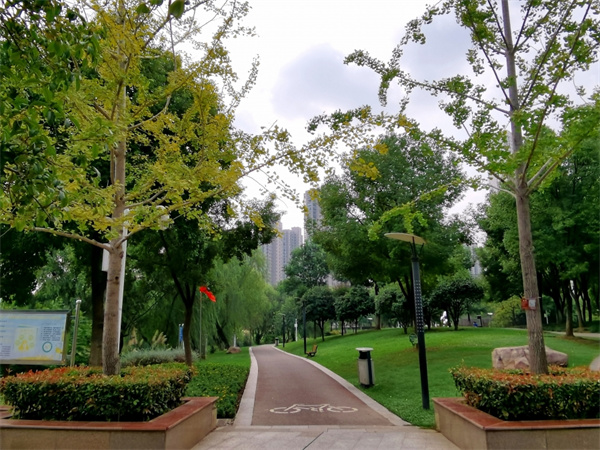
一、被动语态的基本用法 当谓语表示一个动作时,主语和它可以有两种不同 关系;主动关系或被动关系。 在表示主动关系时(即主语为动作的执行者时),谓语的形式称为主动语态(the Active Voice)。在表示被动 关系时(即主语为动作的承受者时),谓语要用另一种形 式,称为被动语态(the Passive Voice)。在被动结构的句 子中,动作执行者可以由介词by引起的短语表示。 1.被动语态的构成 被动语态由助动词be加过去分词构成,时态通过 be表现出来。 1)一般现在时 You're wanted on the phone.有人给你打电话。 2)一般过去时 The book was finished last week. 这书是上周写完 的。 3)一般将来时 You'll be allowed to go out tomorrow. 明天让你出去。 4)现在进行时和过去进行时 ① The building is being built. 这幢楼正在建设之中。 ②The bikes were being repaired. 那时正在修自行车。 5)现在完成时和过去完成时 ①This book has been translated into English. 这本 书已被译成英语。 ②The car had been repaired. 这时汽车已修完了。 2.被动语态主要的用法 1)我们不知道或没有必要说明动作的执行者是谁(这时 都不带由by引起的短语)。 The book is written for teachers. 这种书是为教师写的。 2)动作的承受者是谈话的中心(这时可带有by引起的短语)。 The shop is run by a young man.这家商店是由一个年轻人经营的。 3)出于礼貌措辞等方面的考虑不愿说出动作的执行者 是谁。 It is generally considered not advisable to smoke here.一般认为在这儿吸烟是不妥当的。 4)被动结构能使句子得到更好的安排。 Liu Dehua appeared on the stage and was warmly applauded by the audience.刘德华在台上出现,观众给予了热烈的掌声。 5)在汉语中被动结构的句子是很多的,有些带有“被”、 “受”、“由”等词,译成英语时较易想到用被动结构。 ①他被选为我班班长。He was elected monitor of our class. 但在更多情况下却不带这类标记,这种情况值得特别注意。 ②运动会什么时候开? When will the sports meet be held? 二、被动语态的特殊结构 1.带情态动词的被动结构 Water can be turned into vapour.水可转化成蒸汽。 2.带不定式的被动结构 The plan has to be revised. 必须修改计划。 除了单一的及物动词可用于被动结构外,一些相当于及物动词的成语动词也可用于被动结构。常可这样用 的成语动词有: 1)动词+介词 No conclusion has been arrived at so far.到目前为止还没得出结论。 2)动词+副词 The boy was brought up by his aunt. 这个小男孩是由他姑姑带大的。 3)其他成语动词 She was often made fun of. 人们常取笑她。 4)有些动词可以有两个宾语,在用于被动结构时,可以把主动结构中的一个宾语变为主语,另一个宾语仍然 保留在谓语后面。 The manager was asked a number of questions at the press conference. 在记者招待会上,人们问了经理很多问题。 被动语态的用法: 1. 一般现在时的被动语态构成:is / am / are + 及物动词的过去分词 Our classroom is cleaned everyday. I am asked to study hard. Knives are used for cutting things. 2. 一般过去时的被动语态构成:was / were + 及物动词的过去分词 A new shop was built last year. Dinosaur eggs were laid long long ago. 3. 现在完成时的被动语态构成:has / have + been + 及物动词的过去分词 This book has been translated into many languages. Many man-made satellites have been sent up into space by many countries. 4. 一般将来时的被动语态构成:will+ be + 及物动词的过去分词 A new hospital will be built in our city. Many more trees will be planted next year. 5. 含有情态动词的被动语态构成:情态动词+ be + 及物动词的过去分词 Young trees must be watered often. Your mistakes should be corrected right now. The door may be locked inside. Your homework can be handed in tomorrow. 6. 现在进行时的被动语态构成:am / is / are + being + 及物动词的过去分词 Uncle Wang is mending my bike now.→ My bike is being repaired by Tom now. They are planting trees over there. → Trees are being planted over there by them. 7. 不定式的被动语态:to + be + 及物动词的过去分词 There are two books to be read. → There are twenty more trees to be planted. 二、 怎样把主动语态改成被动语态? 把主动语态改为被动语态非常简单,可以遵循以下几个步骤: 1. 先找出谓语动词; 2. 再找出谓语动词后的宾语; 3. 把宾语用作被动语态中的主语; 4. 注意人称、时态和数的变化。 例:1. Bruce writes a letter every week. →A letter is written by Bruce every week. 2. Li Lei mended the broken bike this morning.→The broken bike was mended by Li Lei this morning. 3. He has written two novels so far.→Two novels have been written by him so far. 4. They will plant ten trees tomorrow.→Ten trees will be planted by them tomorrow. 5. Lucy is writing a letter now.→A letter is being written by Lucy now. 6. You must lock the door when you leave.→the door must be locked when you leave. 三、 使用被动语态应注意的几个问题: 1. 不及物动词无被动语态。 What will happen in 100 years. The dinosaurs disappeared about 65 million years ago. 2. 有些动词用主动形式表示被动意义。
公式:be+动词的过去分词
应用范围:表示被动的情况,一般是及物动词有被动语态,切记不及物动词与一些固定词组是没有被动语态的.例如:happen,take place
英语的语态是通过动词形式的变化表现出来的.英语中有两种语态:主动语态和被动语态.
主动语态表示主语是动作的执行者.巧记为:主动、主动、主去动.
例如:Many people speak English.













































































